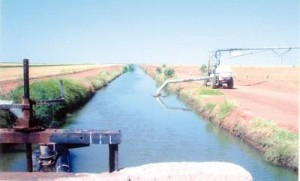
Jordan Times | 7 July 2010
By Hani Hazaimeh
AMMAN - The Kingdom's long-awaited agricultural mega-project in Sudan is facing further delays due to a dispute raised by the foreign investment company over the implementation mechanism, according to the Ministry of Agriculture.
Discussions between the ministry and a group of prospective investors in the mega-project are at a standstill after the investors insisted on owning the lands allocated by the Sudanese government for the project, Agriculture Minister Saeed Masri told The Jordan Times on Monday.
"The company expressed a desire to own the lands of the project to secure more insurance in the future. Under the agreement signed between Jordan and Sudan, this is not possible. However, the investors can have a long-term lease of up to 30 years," Masri said, adding that he will invite the company for a meeting in the coming few weeks in order to put their concerns to rest with regards to the feasibility of the project.
The project started in 1998 when Jordan signed a 70-year agricultural protocol with the Sudanese government, entitling the Kingdom to utilise 250,000 dunums of highly fertile land on the banks of the Nile.
Under the agreement, Jordan was entitled to grow essential cereals and other crops, including animal fodder, and to rear livestock. But the project was shelved and Khartoum set 2009 as a deadline for Jordan to make up its mind to either start implementing the project or risk losing the allocated land.
The plot, meanwhile, continued to shrink as financial difficulties prevented the government from implementing the project.
Earlier this year, a joint Arab-foreign company based in the Philippines approached the government regarding their interest in partnering in the Sudan project.
If hired, the company, which has experience in tropical crops, would oversee the cultivation process, while the ministry will be responsible for providing guidance and training.
Due to financial constraints, Masri said in February that the government had no funds for the project, which is expected to require around JD50 million, and noted that the estimated cost of transporting water for irrigation purposes to the now 80,000-dunum project stands at JD18-JD20 million.
Once both sides come to a common ground, the government plans to sign a memorandum of understanding with the investors under which the government will buy the project’s produce at a cost 10 per cent below international market prices.











